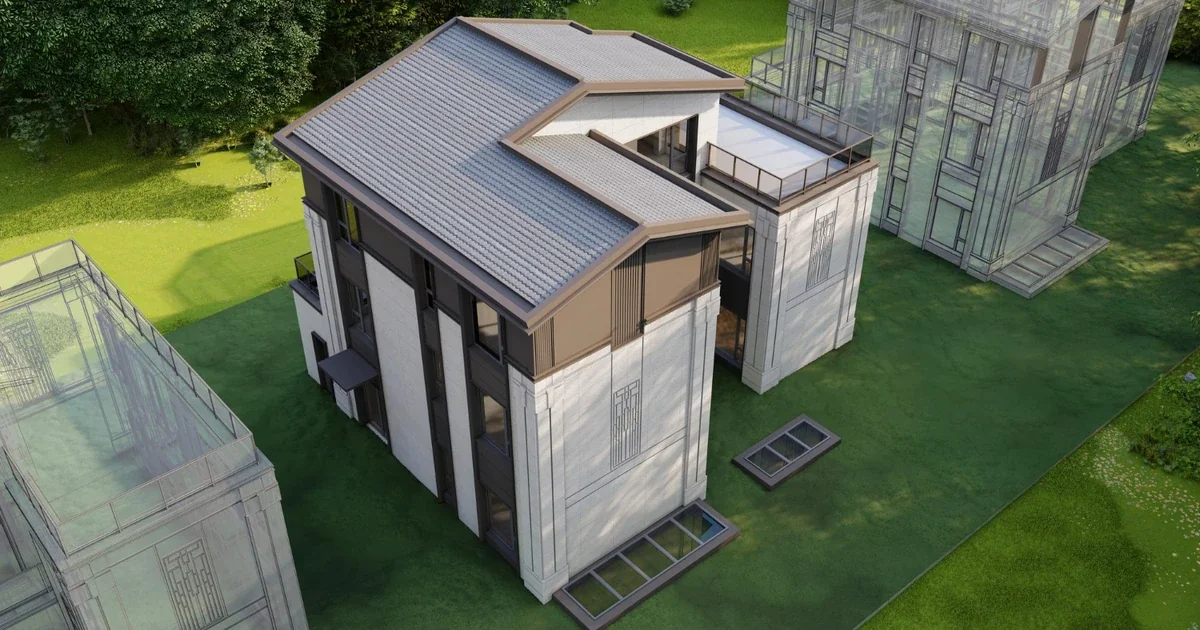Real Estate Taxes and Fees in Dubai 2025
March 19, 2025
Dubai is considered one of the foremost global destinations for real estate investment thanks to its unique investment environment and distinctive tax system. The real estate market in Dubai is characterized by promising investment opportunities, as no direct taxes are imposed on profits, attracting investors from all over the world. In this comprehensive guide from Skyline Holding, we will review the tax system and real estate fees in Dubai for 2025, highlighting the advantages of the system, administrative fees, property transfer costs, and tax exemptions. We will also compare the tax system in Dubai with European systems and offer tips for tax planning for real estate investors in Dubai.
The Real Estate Tax System in Dubai
The tax system in the UAE, particularly in Dubai, is distinguished by several points that make it one of the best destinations for real estate investment:
- No Direct Taxes on Profits: No taxes are imposed on personal income or corporate profits in the real estate sector, which enhances the attractiveness of real estate investment in Dubai for both local and foreign investors.
- Simplicity of Transactions: Real estate laws ensure transparency and clarity in registration processes and property transfers, reducing the risks associated with investment.
- Low Fees Compared to Global Markets: A property transfer fee of only 4% of the property's value is imposed, which is very competitive compared to some markets such as the United States and the United Kingdom.
- Advanced Regulatory Environment: The UAE government continuously updates real estate legislations to provide a stable and secure investment environment.
These advantages make Dubai an ideal choice for investors seeking rewarding returns without facing significant tax burdens.
Details of Fees and Taxes When Purchasing Property
When purchasing a property in Dubai, investors need to understand the various fees imposed during the transaction process:
- Property Registration Fees: These fees are calculated at the time of documentation, often around 4% of the property value if it is between 500,000 and 1,000,000 AED. These fees are usually split between the buyer and the seller.
- Value Added Tax (VAT): A 5% VAT is applied to the real estate services provided. Although this tax is relatively low, it is sometimes added to the purchase cost.
- Real Estate Agency Fees: The commission for the real estate agent is determined and paid separately from the other fees.
- Judicial and Legal Fees: These fees vary based on the requirements of the deal and the investor’s need for specialized legal services.
Understanding these fees is vital to avoid any unexpected surprises during the purchase process, thereby ensuring maximum benefit from Dubai’s real estate taxes in a calculated and studied manner.
Property Transfer Costs and Administrative Fees in Dubai
The property transfer process is an integral part of the purchase, involving several administrative costs:
- Ownership Transfer Fees: These are calculated at 4% of the property's value and are typically divided between the seller and the buyer, unless a different distribution is negotiated.
- Application Submission Fee: Approximately 500 AED is charged for submitting the required documents for the transfer.
- Valuation Fee: Also estimated at 500 AED for assessing the property’s value by an accredited appraiser.
- Property Re-registration Fee: If the property is previously registered, the buyer must pay a fee to re-register it under their name, which varies based on the property's value.
- Government Office Fees and Agency Commission: Additional fees may be added related to services provided by official entities and real estate intermediaries.
These costs are an integral part of the purchase process, and investors must be aware of them to ensure a sound investment decision based on accurate information about property transfer fees in Dubai.
Tax Exemptions and Incentives for Investors
One of the most important aspects that make Dubai competitive on a global level is the tax exemptions and incentives provided by the government:
- No Income Tax: Individuals or companies are not subject to income tax on profits earned from their real estate investments.
- No Property Tax: No annual taxes are imposed on property holdings in Dubai.
- No Taxes on Inheritance and Gifts: This facilitates the transfer of wealth between generations without additional tax costs.
- Incentives for Foreign Investment: Dubai allows foreigners to purchase property in freehold areas such as Downtown Dubai, Palm Jumeirah, and Dubai Marina, which adds a significant encouraging dimension for international investors.
These exemptions are a major attraction for real estate investment in Dubai, providing opportunities to maximize returns without the burden of high taxes, thereby enhancing the appeal of Dubai’s tax exemptions.
Comparison of Dubai's Tax System with European Systems
Comparing Dubai's tax system with that of some European countries is an important step to understanding its competitive edge:
- Income Tax: In Dubai, there is no income tax, whereas income tax rates in some European countries, such as the United Kingdom, can reach up to 45%, and in Germany up to 47.5%.
- Property Tax: Dubai does not impose a property tax, while varying rates are applied in European countries such as Italy, France, and Greece.
- Inheritance Tax: The inheritance tax rates in Dubai are zero, while in European countries they vary according to local legislations.
- Value Added Tax: Although a 5% VAT is present in Dubai, it remains low compared to some European countries that may impose higher rates.
This comparison shows that the UAE's tax system is flexible and highly competitive, making it a preferred choice for investors compared to European systems, which are considered more tax-burdensome.
Tax Planning for Real Estate Investors in Dubai
Effective tax planning is considered a fundamental step to increase returns and reduce costs associated with real estate investment:
- Selecting the Right Properties: Investors are advised to choose properties that are not subject to VAT or those that enjoy certain tax incentives.
- Reinvesting Profits: Investors can use the profits from the sale of a property to reinvest in new projects, which helps reduce the tax burden in the long term.
- Utilizing Appropriate Legal Structures: Establishing real estate companies within the UAE may help improve asset management and reduce administrative and tax fees.
- Engaging Tax Advisors: It is advisable to work with legal and financial consultants to ensure compliance with all legal requirements and to fully benefit from the available exemptions and incentives.
Effective tax planning is one of the most important factors contributing to the success of real estate investment in Dubai, as it helps reduce costs and achieve maximum benefit from the favorable investment environment offered by Dubai.
In conclusion, the comprehensive guide to real estate taxes and fees in Dubai for 2025 shows that Dubai remains one of the best global destinations for real estate investment, thanks to its flexible tax system, competitive fees, and tax exemptions. The real estate market in Dubai offers unparalleled investment opportunities. Furthermore, the comparison with European systems clearly highlights the fundamental differences that make Dubai an ideal choice for investors seeking high returns without facing significant tax burdens. With meticulous tax planning and expert guidance, investors can achieve success and fully benefit from the distinguished investment environment provided by Dubai.
Read Also:
Keywords
What is your budget?
Recommended Articles

December 15, 2025
How to Choose the Right Property in the UAE? 2026 Investor Guide
How to choose the right property in the UAE for 2026. A comprehensive guide covering best areas, ROI calculation, and off-plan buying risks.

November 13, 2025
Turkey’s 2025 Economic Program: How Will It Affect Inflation, the Lira, and the Real Estate Market?
The new Turkish economic program: what it means for investors and how it will impact inflation, the lira, and real-estate investment opportunities in Turkey.

July 8, 2025
Modular vs. Traditional Construction: Speed, Cost, and Durability
A comparison of modular and traditional construction in terms of execution speed, project costs, and durability—essential insights for real‑estate investors.
